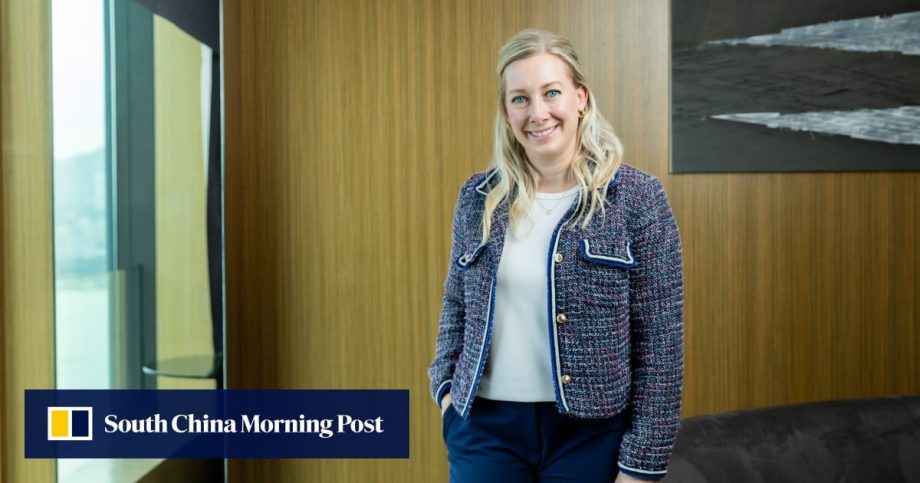A joint Manulife-Mind HK study conducted this year found that nearly half of Hong Kong residents show symptoms of anxiety or depression, with around one in six meeting the clinical threshold for moderate to severe conditions.
The findings underline a mental health system struggling to meet demand, with public waiting times for psychiatric care stretching into years.
“We know mental health is a crisis in many of our markets,” said Chapman. “It affects our employees, our clients and the communities where we operate. The business has a responsibility to be part of the solution rather than stand on the sidelines.”
Corporate strategy meets community need
Manulife’s partnership with Mind HK forms part of the company’s wider “Impact Agenda”, which focuses on health, inclusiveness and sustainability.
Chapman said the collaboration is an example of how large financial institutions can connect commercial purpose with social value through long-term partnerships built on trust.
“These initiatives are long-term investments in healthier communities. When people live more years in good health, they need the financial means to sustain that life, so health and wealth go hand in hand.”
She explained that Manulife interprets longevity as a combination of physical, mental and financial well-being.
The company has recently expanded this focus globally with the launch of the Manulife Longevity Institute, a platform designed to advance research and action that help people live longer, healthier and more financially secure lives.
The insurer has also worked with researchers at the Massachusetts Institute of Technology on a report examining how social belonging, health and financial preparedness influence quality of life.
Another objective of the partnership is to increase the accessibility of mental health support. A new initiative, the “Manulife x Mind HK Free In-Person Well-being Check-in”, will be launched early next year, fully funded by Manulife.
The 12-month pilot will provide more than 700 sessions for adults aged between 18 and 65, all of whom will be offered affordable and stigma-free early intervention for emotional distress.
A new model for corporate-NGO partnerships
Speaking at the Hong Kong International Mental Health Conference 2025 in November, Chapman said effective collaboration between corporates and non-profits depends on authenticity, shared purpose and trust.

Her comments contrasted with the traditional corporate giving model in Hong Kong where donations are often tightly restricted and charities spend more time proving outcomes than delivering services.
Manulife, she added, prefers “unrestricted funding” that allows Mind HK to direct resources where they are most needed. This approach reflects what she calls “shared value”, a business philosophy that seeks to create commercial and social benefits simultaneously.
Her remarks came during the Voices Unheard session, where she appeared alongside Professor Dixon Chibanda of the London School of Hygiene and Tropical Medicine and Dr Michael Rivera of the University of Hong Kong, a Mental Health Ambassador with Mind HK.
Chibanda, founder of the Friendship Bench initiative in Zimbabwe, called for a “de-medicalised” approach to mental health through simple, community-based interventions.

Evidence and accountability
Manulife measures impact through outputs and outcomes as two key dimensions.
Outputs include the number of participants reached through therapy, education or awareness activities, while outcomes track broader effects such as productivity gains, reduced mental health claims and community engagement.
“We track participation across programmes, but the real question is what changes because of that participation,” Chapman explained.
“If our employees and our customers are healthier, more resilient and less likely to take extended leave for mental health reasons, that is both a social and an economic win.”
She added that the company applies similar frameworks globally through its sustainability reporting, integrating social impact metrics alongside environmental and governance data.
“Mental health used to sit outside ESG conversations. Now it is becoming central to the social pillar.”
Internal leadership and culture
While the partnership with Mind HK focuses on external impact, Chapman said Manulife is also working to normalise mental health discussions internally.
The insurer has introduced well-being check-in days, mental health training for employees, as well as symbolic tools such as emotion pins that staff can wear to indicate how they are feeling.
“When the leadership demonstrates openness and humanity it signals that it’s safe for others to do the same. Sometimes leaders do not know what to say or do and that is all right – the important thing is to be authentic and to keep learning.”
She added that mental health awareness is now woven into the company’s global culture programmes, alongside physical health benefits and community volunteering schemes.
.jpg)
The economic rationale for empathy
The World Health Organisation estimates that depression and anxiety cost the global economy about one trillion US dollars a year in lost productivity. Chapman said companies cannot afford to ignore that reality.
“It’s good business to care about mental health. Healthy, engaged people are more productive and more creative. If we can reduce absenteeism and help people feel supported, the economic benefits follow naturally.”
The company has already seen increased engagement across its Hong Kong operations, with its employees participating in awareness events and training.
Towards a more resilient Hong Kong
Mental health advocacy remains a relatively new space for the city’s corporate sector, though momentum is growing.
Some financial institutions, for example, have begun to integrate well-being initiatives into their ESG strategies, but Manulife’s partnership with Mind HK is among the few designed from the outset as a multi-year collaboration with measurable community outcomes.
The model could serve as an example for others. When companies integrate social purpose with business incentives, they are more likely to sustain engagement long after the publicity fades.
Chapman agreed that the shift requires patience and persistence.
“Culture can’t be changed overnight. It takes time to build trust, both within the organisation and with community partners. But every conversation helps to move the needle.”
Leadership across three fronts
As Chief Marketing Officer for Manulife Wealth & Asset Management, Global Chief Sustainability Officer and Global Head of Digital and Customer Centricity for Manulife, Chapman oversees the intersection of purpose, strategy and customer experience across markets.
She said the roles may sound distinct but are tied together by a single idea, which is to create shared value that benefits both society and the business. She also describes her remit as that of a translator between technical experts, business leaders and communities.
“If we can show people that financial security, health and well-being are connected, we build both stronger communities and stronger relationships with our customers.”






